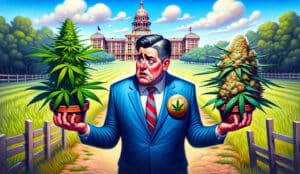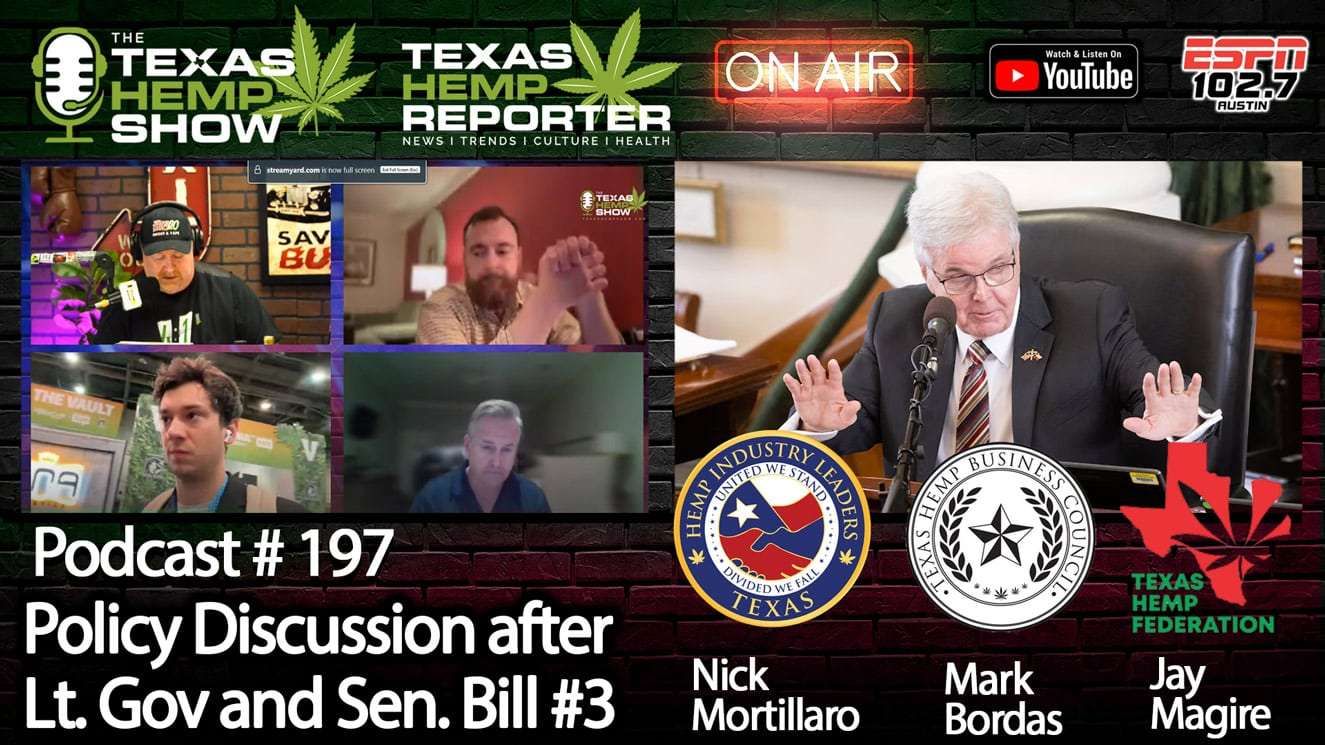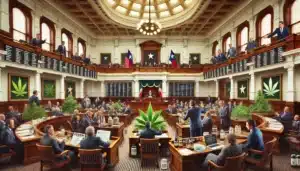Lt. Governor’s Prohibition Push: History Repeats in Texas Hemp Debate
When Lt. Governor Dan Patrick announced Senate Bill 3 to ban all forms of THC in Texas, he drew from a familiar political playbook. His declaration that “thousands of stores have opened to sell all types of dangerous products with unlimited THC” echoes rhetoric used to justify cannabis prohibition in the 1930s, when claims about “reefer madness” helped drive federal policy.
The Texas Hemp Federation, through Executive Director Jay Maguire, responded: “The Lt. Governor’s characterization ignores basic facts about our industry. Legal hemp businesses employing thousands of Texans are providing safe, tested products while generating over a billion dollars in tax revenue. This isn’t about public safety – it’s about politics.”

Patrick’s announcement comes as multiple studies show regulated hemp markets reduce illegal sales and provide safer alternatives for consumers. States with strict regulation rather than prohibition consistently report better outcomes for both public health and law enforcement resources.
The timing is particularly notable given recent challenges to the “tough on drugs” political narrative. As more states move toward regulated markets, evidence continues to mount that prohibition creates more problems than it solves. Even traditionally conservative states have begun embracing hemp’s economic benefits while implementing sensible regulations.
Law enforcement perspectives have also evolved. Many departments now prefer focusing resources on actually dangerous substances rather than hemp products. Some Texas police chiefs have publicly stated that regulated hemp markets make their jobs easier by clearly distinguishing legal from illegal products.
The economic stakes are substantial. Beyond direct revenue and employment, Texas’ hemp industry supports numerous ancillary businesses from agriculture to retail. Local communities across the state have come to depend on hemp-related commerce and tax revenue for essential services.
“History teaches us that prohibition doesn’t eliminate demand – it just drives markets underground,” notes the Federation’s statement. “We’ve built a transparent, regulated industry that protects consumers and supports communities. Dismantling it would only benefit illegal operators.”
The proposed ban faces several hurdles, including potential federal preemption under the Farm Bill and likely legal challenges from affected businesses. Previous attempts at administrative prohibition have already been blocked by Texas courts.
For now, the industry continues operating under existing regulations while preparing for what promises to be a defining legislative battle. The outcome may well determine whether Texas embraces evidence-based policy or returns to failed strategies of the past.
[Note: This article represents ongoing coverage. The Texas Hemp Reporter will continue following developments as this story unfolds.]




